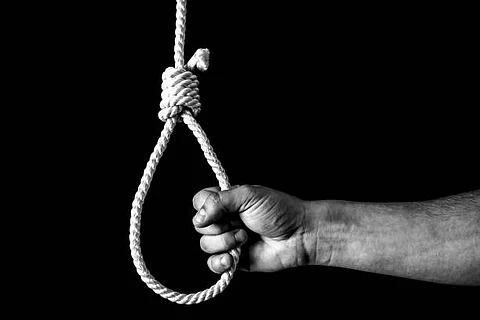
- Home
- Live Blog
- Breaking News
- Top Headlines
- Cities
- NE News
- Sentinel Media
- Sports
- Education
- Jobs

MUMBAI: The Annual IC3 Conference & Expo 2025, held at the Jio Convention Centre in Mumbai on August 20–21, brought together more than 1,500 educators, school leaders, counsellors, and university representatives from across 95 countries to address one of the most urgent challenges facing India’s youth: student mental health and well-being.
The conference, centred on the theme “Counselling as a Culture”, marked the launch of the Student Suicides Aversion Report-Mental Health & Well-Being, Volume III: The Student Well-Being Pulse Report, an extensive survey based on responses from 8,542 students across India by the IC3 Institute.
The report reveals a crisis cutting across grades, gender, and geographies. While academic pressure remains the dominant stressor, students report persistent emotional distress, lack of access to professional support, and widespread uncertainty about their futures.
Key findings from the 2025 student well-being pulse report reveal emotional distress among students is widespread. One in five rarely experiences calmness, motivation or excitement, and girls continue to be disproportionately affected, reporting nearly twice the rate of persistent sadness compared to boys. Forty percent of students do not know where to go in school for mental health support, while nearly half have never received structured career counselling, a key source of anxiety about their future.
Three out of four Grade 12 students fall short of the recommended 7–8 hours of sleep on school nights, driven largely by academic overload and relentless overthinking. Yet, there are positive signs: more schools today acknowledge the importance of counselling, and awareness among students of where to access support has been steadily rising. The Supreme Court has also underscored the urgent need for robust school-based counselling systems, adding both momentum and legitimacy to this critical movement.
Commenting on the findings, Ganesh Kohli, Founder of the IC3 Movement, said, “This is no longer a silent problem. It is a visible and urgent crisis. While more schools are now offering counselling and students are increasingly aware of where to seek help, almost half of our students still remain unsure, and career anxiety continues to steal their sleep and peace of mind."
"Mental health cannot be treated as optional. Every school must make counselling and emotional support part of its core infrastructure while expanding access, broadening programmes, and equipping teachers and staff as trained gatekeepers. Our children deserve nothing less,” Kohli added.
Gendered and Hidden Struggles
The report underscores deep gender disparities. Girls are more likely to internalise stress and avoid professional help, while non-binary students report the lowest overall well-being. Friends are often the first point of contact for students in distress, yet most peers lack the training to provide effective support.
Career Anxiety and Academic Overload
Uncertainty about the future is among the top three stressors for students. Without clear and consistent career guidance, many feel adrift, compounding the academic pressure that defines much of adolescence. Sleep deprivation, especially among senior students, is at critical levels and directly linked to screen use before bedtime and chronic overthinking.
ALSO READ: “No Feeding on Roads”: Supreme Court Issues New Guidelines on Stray Dogs
ALSO WATCH: